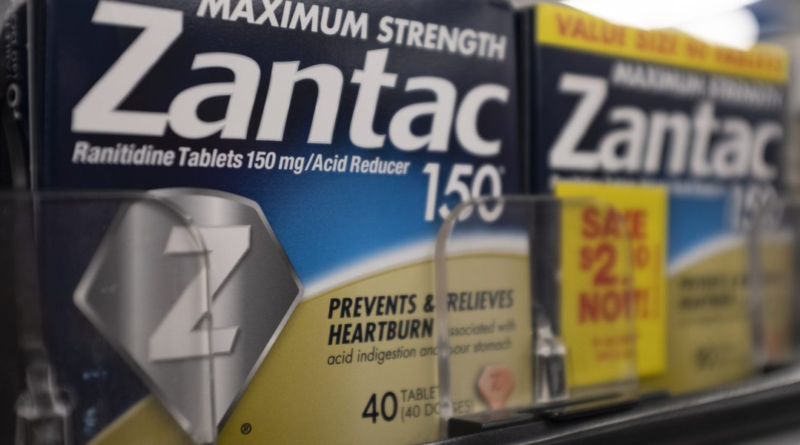Victory for drugmakers GSK and Boehringer in $640 million Zantac cancer lawsuit
Drugmakers GSK Plc and Boehringer Ingelheim GmbH persuaded a Chicago jury to reject a woman’s claim that the blockbuster heartburn drug Zantac caused her cancer, handing the companies a win in the first of thousands of such lawsuits to go to trial.
Jurors on Thursday found that GSK and Boehringer weren’t liable for Angela Valadez’s injuries and that the companies had properly marketed the drug without a warning about its alleged cancer risk, according to GSK and lawyers involved in the case. Valadez had been seeking at least $640 million in damages.
The verdict in Illinois state court was good news for GSK and Boehringer investors concerned about the financial fallout of thousands of US lawsuits targeting Zantac makers and seeking billions of dollars in damages.
GSK’s shares were slightly lower in early London trading. They have risen 20% since the start of the year.
Jefferies had previously said that while it was skeptical of the scientific basis for Zantac’s link to the tumor type seen in this court case, the risk to GSK’s share price of an adverse jury verdict was 10 to 15%. Now this overhang has been removed, said Jefferies analyst Peter Welford.
Shore Capital’s Sean Conroy described the result as “another positive outcome for GSK,” adding that it was a step toward clearing the litigation-related overhang that has overshadowed the company’s growth outlook.
GSK said the outcome is “consistent with the scientific consensus that there is no consistent or reliable evidence” of increased cancer risks from Zantac.
Mikal Watts, one of Valadez’s lawyers, said Thursday he respected the jury’s decision but will continue to bring more claims to court. “Zantac harmed many Americans and we will prove that over and over in jury trials to come,” Watts said.
During the trial, Valadez testified that her cancer wreaked havoc with her bowels, forcing her to deal with explosive diarrhea in social settings. In one instance, she had an accident in a limousine on the way to a relative’s wedding and had to return home to change clothes.
“I can’t live a normal life,” according to a transcript of her testimony. “This is why I don’t even want to go anyplace anymore.”
Zantac hit the US market as a prescription drug in 1983 before becoming an over-the-counter product in 1996. It was the world’s top-selling medicine five years later and recognized as one of the first blockbuster drugs to rack up more than $1 billion in annual sales. It’s been owned by a number of companies over the years.
Paris-based Sanofi — Zantac’s current owner — agreed to pay more than $100 million to settle about 4,000 lawsuits claiming it failed to warn users that Zantac could cause cancer, Bloomberg News reported last month. The French drugmaker still faces claims in other state courts.
USDA Recall
GSK has settled some cases before they went to trial, but it opted to let jurors hear Valadez’s claims over her colorectal cancer. She argued Zantac’s former active ingredient, ranitidine, formed the likely carcinogen NDMA over time or when stored in elevated temperatures. The US Food and Drug Administration recalled Zantac in 2019 over the NDMA discovery.
Lawyers for GSK and Boehringer argued during the nearly monthlong trial that no scientific studies have linked ranitidine to colorectal cancer and that Valadez likely developed the illness — which affects millions of Americans every year — because of other risk factors.
After the FDA recall, Sanofi won approval to return Zantac to US store shelves, but without ranitidine. It’s now made with famotidine, the active ingredient in competitor Pepcid, which is marketed jointly by Merck & Co. and Johnson & Johnson spinoff Kenvue Inc.
Zantac makers got a boost in 2022 when a federal judge threw out more than 5,000 suits filed in federal court in Florida, saying the science behind the cancer claims was flawed. That decision also applied to about 50,000 unfiled cases covered by the so-called multi-district litigation (MDL), according to court filings. Many of those cases later were refiled in state court in Delaware.
Judge Vivian Medinilla in Wilmington is weighing the validity of the scientific evidence underlying the more than 70,000 Zantac cases filed in her court. She is expected to rule soon on whether juries can hear those suits.
The Chicago case was Valadez v Walgreens, 2020-L-000483, Cook County Circuit Court (Chicago).



